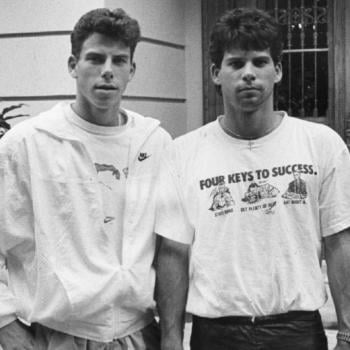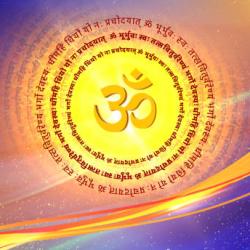I suspect the news that the powerful men in Rome had actually meant to treat the faithful like adults capable of self-discipline would have been very welcome and inspiring in that era of liberation and self-discovery, but I've never met anyone who was taught it. Lacking that, most Catholics wondered why things that used to matter suddenly did not, opening wide the doors to doubt, and then forgot about a useful spiritual exercise. Suddenly Friday became just like any other day, and thus time became less sanctified -- as did most things.
We youngsters riding on the cusp of change grew up anxious, never quite knowing what to expect at Mass. Would we be clapping hands today? Will there be bells at the consecration? Are we always going to recite the Eucharistic prayer along with the priest like we did last week? Should I bring my tambourine?
♦ ♦ ♦
My memory of the Traditional Mass is cloudy and vague, and I suspect a bit romantic, but I recollect the first translations of the Novus Ordo very well; they were more exact, and more spiritually focused than what eventually followed. We easily learned our vernacular responses, which were pretty nice:
"The Lord be with you."
"And with your spirit."
"Lord, I am not worthy that you should come under my roof; speak but the word, and my soul shall be healed."
And then we learned them again:
"The Lord be with you."
"And also with you."
"Lord I am not worthy to receive you; but only say the word, and I shall be healed."
Small differences brought significant changes in meaning, and we sensed it. The liturgy kept evolving, the emphases kept changing, and every reform and bizarre new experiment was described as being "in the spirit of Vatican II." To many of us things often seemed arbitrary, impermanent, and disordered. Weighed against the aura of mystery, gravity, and unambiguous purpose that we remembered, the attractions of Mass in the vernacular -- and there were many -- seemed to rise in the balance. In short order, Masses became so individualized and unpredictable that it became easy to walk away from a church that seemed to fit itself to times and trends, rather than transcend them.
And so we left in droves. A great number of us have never found our way back into the pews; those who have often squirm a bit, wondering: Is the so-so liturgy, the casual-Fridays atmosphere, and the truly deplorable three-chord campfire music really as good as it can get? Is this really the best and most reverent worship we can offer to the Almighty?
For those of us whose religious formation was transitional, the implementations of Council recommendations were successive earthquakes and aftershocks, inflicting huge cracks upon our foundations. We, who had only begun to absorb and appreciate our Catholic identities and traditions before everything changed, have been straddling a spiritual chasm ever since. One foot catches on the pre-Vatican II soil of tradition, vertical worship, mystical awe, and order. Maybe, we concede, it was a bit sterile and distant; perhaps there was a little too much order. Our other foot is planted post-conciliar, amid informality and determined outreach. It's warmer, more accessible, and less exalted, but -- well, it's less exalted. We stare into the breech and wonder if the attractive bits we see lingering on both ragged edges can somehow be brought together.
A few years ago a "cuspy" Catholic neighbor and I, exchanging memories of the Tridentine liturgy and bemoaning the sort of knockabout, sloppy Masses we had been suffering through, decided to attend an "Old Rite" Mass in the area. We came away from it feeling surprisingly less satisfied than we had hoped. The Mass was beautiful, indeed, reverent and purposeful, but "I didn't like his back being to us," my friend complained. "I couldn't understand a word he was saying, and I felt like he didn't care whether we were there or not!"
"I didn't like the head covering," I admitted, "it distracted me and I wanted to pull it off."
"But still, I liked kneeling to receive the Eucharist," she said.
"Yes, and the silence after Communion. You never hear Holy Silence at Mass anymore."
"Yeah, but I hated not making the responses. I forgot that the altar boys did that . . . "
Perhaps our memory nags us into craving more than we actually want.
We drove home imagining the "perfect" Mass. It would be the Novus Ordo, after all, but with a more inspired, less horizontal translation. There would be more "The Church's One Foundation" and less hand-clapping. The Eucharistic responses would be in Latin -- "and," said my friend, "if after all these years, someone can't compose a singable Gloria that doesn't plod, let's just go back to chanting it, can we, please?
The Novus Ordo isn't going anywhere, but many Catholics who appreciate its music, relaxed standards, and the dicey creativity of parish liturgists are wary of Pope Benedict XVI's 2007 motu proprio, Summorum Pontificum. They worry that the "traditionalists" who have longed for greater availability of the Tridentine Rite and more traditional worship will try to inflict what they perceive to be dead forms onto the newer Mass.





